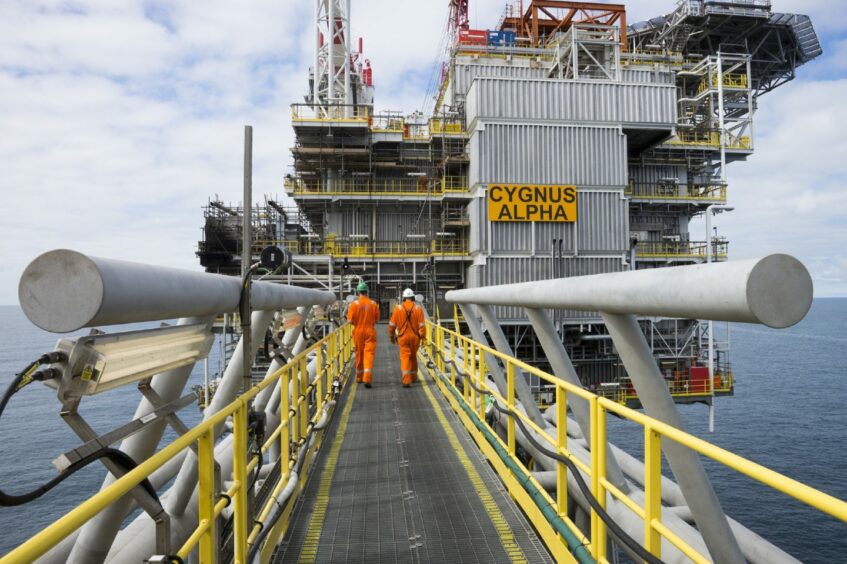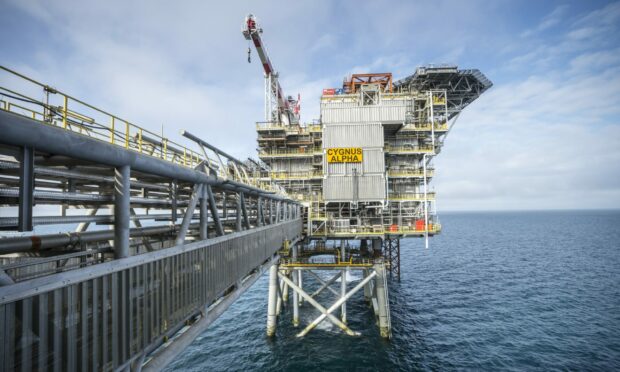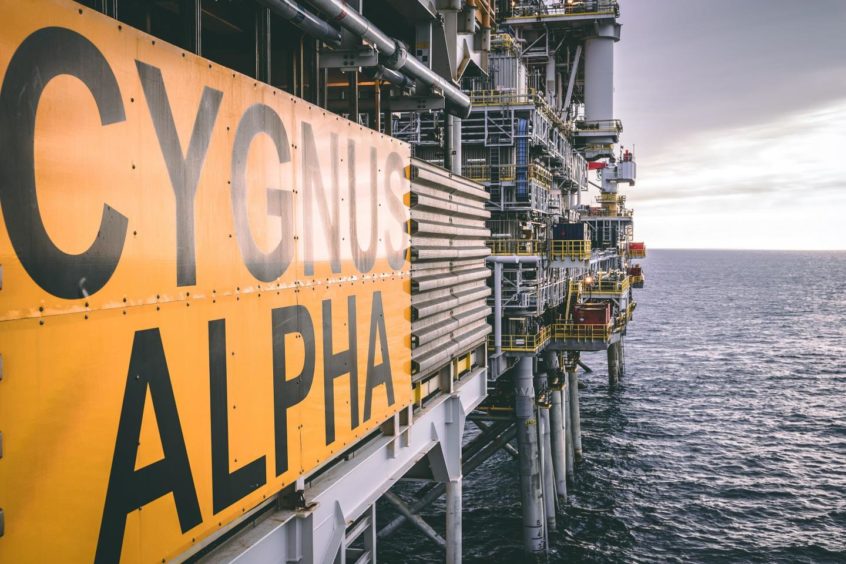Offshore engineer James King has said he is suffering mental health issues as he waits for the findings of a probe into safety issues he flagged on a North Sea installation.
Mr King was dispatched by energy services firm Worley to a maintenance job on the Neptune Energy-operated Cygnus platform in summer 2018.
He said he stopped work on an operation to lift compressors, as he believed the job to be unsafe due to the weight capacity of equipment and the lack of a proper lifting plan.
HSE uncovered a series of breaches in lifting operation
These concerns were later vindicated by a Health and Safety Executive (HSE) report, seen by Energy Voice, sister website to The Press and Journal.
It found a series of breaches of industry lifting rules during the operation, including failures in preparing and updating lift plans.
It is understood no enforcement action against duty-holder Neptune was taken.

Mr King, who lives in South Shields, claimed he was subjected to “threats and bullying” by fellow Worley staff and removed from the platform over his decision to stop the lifting job.
In the days after the incident he was given a “malicious” first trip assessment (FTA), despite his several years of service and lift work across offshore assets, including eight trips to Cygnus A, he said.
An FTA is a probationary evaluation usually reserved to assess inexperienced workers’ first trip offshore.
Complainant was considered an ‘asset to future projects’
Mr King had previously been assessed as an “experienced rigger” and “asset to future projects”.
Worley withdrew the latest assessment after he launched a grievance hearing.
“I had been to 15 oil rigs in four years for Amec, who became Worley Parsons… and no one mentioned my work capability,” Mr King said.
He claimed Worley showed “no duty of care” after the incident, while stress from it had left him unable to return to work offshore for several years. It also left him with severe mental health issues and stress-induced psoriasis (a skin condition that causes flaky patches of skin which form scales), he said.
What is Worley saying?
Mr King eventually left Worley, which advised him to cease contact in December 2019, as it considered the matter “fully investigated and closed” in the wake of the HSE probe.
The company confirmed to Energy Voice that Mr King had been employed by the firm, but said it could not comment on individual HR matters.
Worley added: “The first trip assessment process is conducted when personnel move to a new contract or project, and not just for the first assignment with the company.
Worley ‘committed to achieving health and safety excellence in all its business practices and operations’
“We cannot comment on any investigation by the Health and Safety Executive where our processes and procedures are not involved. Where there are reports of potential safety breaches or safety concerns reported by our employees on a client-operated site, Worley will always address these with our clients to ensure they are aware and that appropriate action is taken. This is in accordance with our values and our duty of care.
“Worley is committed to achieving health and safety excellence in all its business practices and operations. We prioritise providing a physically and psychologically safe, healthy and respectful environment for our people and take action where necessary.”
Mr King claimed he was “forced off” the platform and that the lifting operation was carried out by other crew.
He said he raised his concerns repeatedly with Worley and then with HSE, in late 2018.
Inquiries were made throughout 2019 and included an inspection of the asset.
In the days following the incident Neptune also conducted its own investigation.
HSE found Neptune’s probe had “missed important findings” and wrongly concluded the equipment was safe from failure despite under-capacity lifting equipment being used.
The health and safety regulator found no evidence to support Mr King’s allegation of a “cover up” of unsafe practices. It did not examine allegations of “undue pressure” on lifting workers, owing to the length of time since the incident.
Neptune’s own investigation
Still concerned, Mr King wrote to top executives at Neptune. Correspondence between him and Neptune shows a long-running internal investigation by the operator has yet to be concluded, some five years on from the incident.
In a statement Neptune said: “Concerns raised by a contractor colleague in relation to a lifting operation were investigated by both Neptune Energy and the Health and Safety Executive. Subsequent recommendations made by the HSE were implemented fully and Neptune thanked the individual for raising their concerns.
“The individual later contacted Neptune with additional concerns, which Neptune has investigated thoroughly, with the assistance of independent experts. To date, the findings are consistent with the outcomes of the original investigations, and we will feed back to the individual in due course.”
Whistleblowing protections
Unions and campaign groups have called for an overhaul of whistleblowing legislation to close loopholes which mean many offshore workers receive next to no legal safeguards when raising alarms.
For years workers have complained of victimisation and in particular the widespread use of “not required back” status if they raise concerns about safety and conditions.

